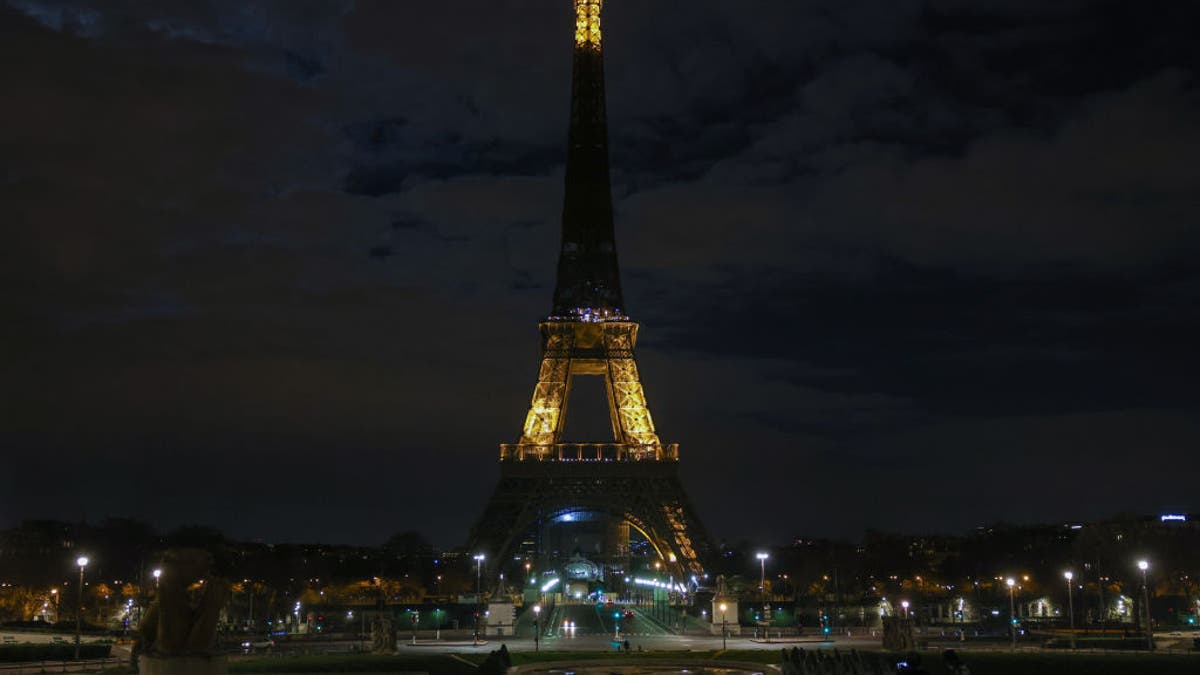Queen Elizabeth II’s coffin returns to London
‘The Story’ host Martha MacCallum covers the return of Queen Elizabeth’s coffin to London where she will be laid at Buckingham Palace one final time before her funeral.
Lights on the Eiffel Tower will soon be turned off more than an hour earlier at night to save electricity, the Paris mayor announced Tuesday, as Russia’s war in Ukraine deepens an energy crisis in Europe.
Mayor Anne Hidalgo said the iconic tower is only one of the city’s monuments and municipal buildings that will be plunged into darkness earlier in the evening as the French capital — like the rest of France and Europe — faces risks of power shortages, rationing and blackouts when energy demand surges this winter.
Russia has reduced natural gas supplies to several European countries as they support Ukraine, sending prices for gas and electricity surging. It’s fueled inflation and raised fears about shrinking supplies as the heating season draws near, forcing countries to enact conservation measures and relief for consumers and businesses. While some European companies have reduced or halted production as energy prices surge, the European Union is looking to pass proposals to ease the crisis.
FRANCE HONORS HOLOCAUST VICTIMS OF MASS PARIS ROUNDUP
Ornamental lights typically illuminate the Eiffel Tower until 1 a.m., with dazzling white lights every hour. It will now go dark after 11:45 p.m. Other landmarks operated by the city, such as Saint-Jacques tower and City Hall, will be turned off at 10 p.m.
INFLATION IN GERMANY HITS NEAR 50-YEAR HIGH AMID ENERGY CRISIS
The measures are part of the mayor's "energy sobriety" plan, which will go into effect on September 23.
Hidalgo said the plan aims to reduce the city's energy use by 10% in attempts to soften the blow of rising costs by an estimated 10 million Euros.
Scaling back the Eiffel Tower's lights would mean a 4% reduction in its power consumption.
"It’s a symbolic, but an important step," Hidalgo said, brushing off criticism that Paris authorities could do more to reduce energy consumption by 10%.

The Eiffel Tower submerges into darkness as part of Europe's "energy sobriety" plan to combat rising energy costs. ( Pierre Suu/Getty Images)
For safety reasons, streetlights will stay on across Paris and the ornate bridges over the Seine River also will remain illuminated at night, Hidalgo told reporters.
To align with France’s savings plan, she said she will press the government to adjust the lighting on national monuments in Paris, such as the domed Pantheon and the Arc de Triomphe, the famous Napoleonic arch that dominates the Champs-Elysees Avenue.
Paris' authorities also aim to save energy by moving back when they turn on the heat in public buildings by a whole month, from mid-October to mid-November. They also plan to lower the temperature in public buildings by 1 degree, from 19 to 18 degrees Celsius (66 to 64 degrees Fahrenheit) during office hours, and to 16 C after hours and on weekends.
CLICK HERE TO GET THE FOX NEWS APP
The Associated Press contributed to this report.









































